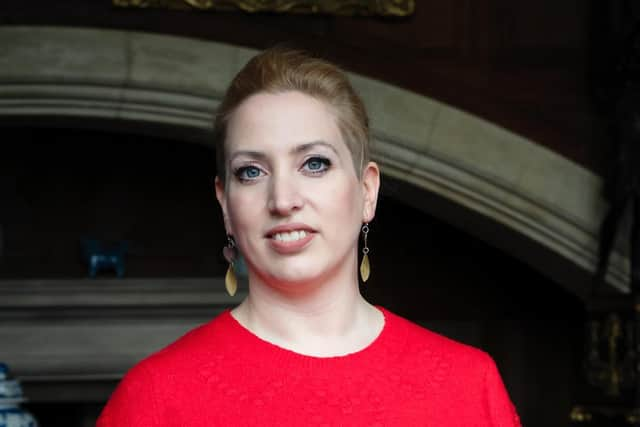Glyndebourne’s first youth opera since 2017 since takes to the stage
and live on Freeview channel 276
A big part of its significance will be that it comes from an all-female composer team
Anna Appleby, Ninfea Cruttwell-Reade, Cecilia Livingston and Ailie Robertson have teamed up with librettist Hazel Gould and designers Natalia Orendain and Joanna Parker to create a reimagining of the Pied Piper of Hamelin story.
Advertisement
Hide AdAdvertisement
Hide AdThe first time Glyndebourne has commissioned a new work by more than one composer, it has been jointly composed by the four participants under Balancing the Score, a development programme exclusively for female composers, set up by Glyndebourne to help address the underrepresentation of female composers in classical music.


As Ailie says, female underrepresentation is still a big issue: “It is still a very very big imbalance. It has got better over the last years and a lot of schemes have been set up that are trying actively to address this but there is still a huge gender inequality particularly in the classical world. There was a survey in 2021 and only 13.5 per cent of composers were women compared to the 76.5 per cent that were male.
“I would hope that nobody is actively trying to keep women out but it stressed the background really when you think back to school. When I was studying music I don’t think we ever spoke about female composers. If you’re only studying dead white men you don’t immediately think about considering it as a career path yourself for women. I think a lot of it has been to do with what we are exposing our schools too but I would certainly like to think there will be a time when it won’t be an issue at all.”
In the mean time it is certainly fair enough to talk about male composers and female composers – though Ailie makes the point that if you heard a piece blindfolded you certainly won’t be able to tell whether it was written by a man or a woman.
Advertisement
Hide AdAdvertisement
Hide Ad“I just think this is something that is going to take generations come through,” says Ailie, but in the mean time a bit of positive discrimination is a good thing: “You would never want to get opportunities just because of what you have got between your legs but I do think you have to appreciate that sometimes extra help is needed and I do think opera is a difficult one to get into because it is seen as very elitist. All the companies are doing great work trying to take opera to different audiences and they have to because they want to maintain their relevancy. The point is it is really important to try and get younger and different audiences hooked.
“I don’t think there are differences between pieces written by a male composer or a female composer. It is just about the opportunities.”
And part of the way to address that is to set up schemes which will encourage female composers such as the one which has brought the four composers of Pay The Piper together.
“We hope that in the end people simply think that this music is fantastically high quality and that really it doesn’t matter what gender we are. The final output is what the artists have created. It is not male or female but it has been a great process and the collaboration between the all-female team has been lovely.
Advertisement
Hide AdAdvertisement
Hide Ad“We’ve been able to do it without any great sense of competitiveness. Everyone has been very supportive of each other. There are limited opportunities so our world ends up being rather competitive. It can be quite difficult to get ahead in the field especially as lots of schemes are done on a competitive basis. If there’s a commission, you are to an extent competing against your peers but it has been lovely that this has been done in such a supportive way.”
The opera will be directed by Glyndebourne’s artistic director Stephen Langridge, based on the ideas and concept developed by the critically acclaimed director Sinéad O’Neill, who is on maternity leave. The young American-British conductor Johann Stuckenbruck and assistant conductor Ashley Beauchamp will work with the Psappha ensemble, specialists in the performance of work by living composers.
Pay the Piper will be performed by approximately 70 young people (aged nine-19 years) from Glyndebourne Youth Opera (GYO), alongside three professional singers.
Pay the Piper has four public performances at Glyndebourne between February 25-27 2022, including a chilled afternoon performance suitable for all the family on Saturday, February 26.
Advertisement
Hide AdAdvertisement
Hide AdThere will also be a dedicated performance for schools on Thursday, February 24.
Visit glyndebourne.com/paythepiper.
Comment Guidelines
National World encourages reader discussion on our stories. User feedback, insights and back-and-forth exchanges add a rich layer of context to reporting. Please review our Community Guidelines before commenting.